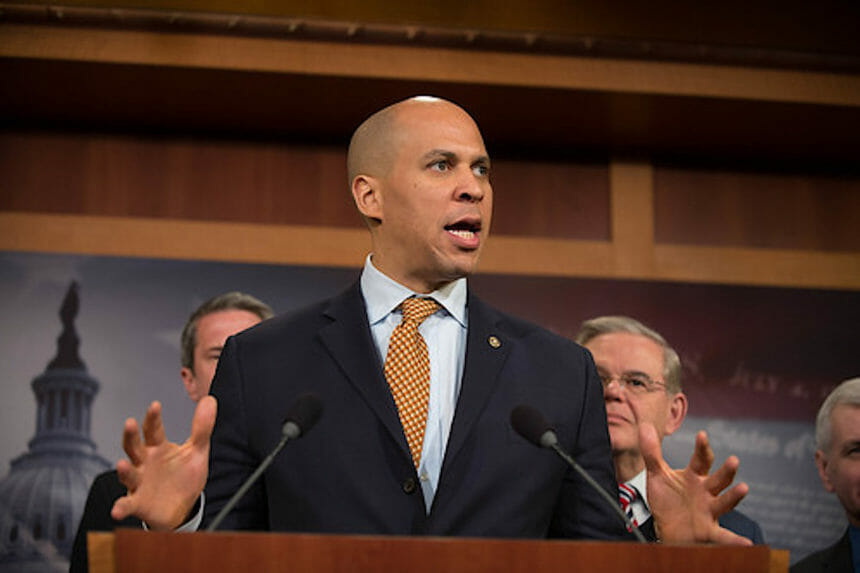
Changing eligibility for long-term services and supports, expanding access to home- and community-based services, increasing compensation for paid caregivers and finding a way to compensate family caregivers — all are elements of a plan for long-term care unveiled in late December by Sen. Cory Booker (D-NJ), a candidate for the Democratic nomination for president in the 2020 election.
“No one should have to impoverish themselves or quit their job in order to get the care they need or secure care for a loved one,” he said on his campaign website.
Booker proposes:
- Increasing asset limits for long-term services and supports to $200,000 and income limits to 300% of the federal poverty line (approximately $49,380 for a family of two). People whose assets / incomes exceed the limits would be able to buy into the program, with cost-sharing determined on a sliding scale.
- Requiring that states offer HCBS in addition to institutional care such as nursing homes.
- Paying professional caregivers at least $15 per hour and providing them with access to affordable healthcare, retirement benefits, paid family and medical leave, and other benefits.
- Expanding the Earned Income Tax Credit, to compensate family caregivers for their work. The proposed “Rise Credit” would be a credit of up to $4,000 to caregivers of children and relatives under the age of 6, children with disabilities, or elderly spouses or other dependents. Qualified caregivers would receive the full benefit if they earn less than $30,000 (or $50,000 for a married couple), with benefits phasing out thereafter.
- Improving access to paid family leave, training, respite and case management benefits for family caregivers, including by fully funding the Older Americans Act and passing his In-Home CARE Act.
“In order to limit the impact of the program on state budgets, the new costs associated with the expansion of Medicaid LTSS eligibility and workforce standards for care workers would be financed entirely by the federal government, effectively a 100% ‘match,’ ” according to Booker’s website. “This will ensure that every state can expand access without straining other healthcare programs.”
Specifically, he said, the program would be financed by reforming the capital gains, estate and income taxes.



